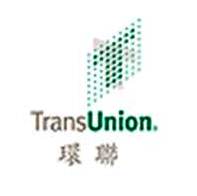 Compared to many advanced western economies such as the US where credit bureaus have been operating for over a century, Hong Kong’s credit bureau – more commonly known as the Credit Reference Agency (CRA) – is just ten years old. And yet Hong Kong’s consumer credit data system is one of the most advanced and richest in information across Asia. Over the past decade, it has demonstrated its value time and again in supporting Hong Kong’s economic growth.
Compared to many advanced western economies such as the US where credit bureaus have been operating for over a century, Hong Kong’s credit bureau – more commonly known as the Credit Reference Agency (CRA) – is just ten years old. And yet Hong Kong’s consumer credit data system is one of the most advanced and richest in information across Asia. Over the past decade, it has demonstrated its value time and again in supporting Hong Kong’s economic growth.
As in a number of other Asian markets, such as Singapore, Korea and Thailand, the CRA in Hong Kong was established after the Asian financial crisis when levels of credit card delinquency and personal bankruptcy were at a record high.
The crash had revealed a pressing need for financial services companies across the region to share more comprehensive information on their customers’ credit commitments. Previously, financial services providers were only sharing information on people with negative credit events and histories. This meant that credit providers had no way of knowing if someone with no history of late or missed payments had taken on more financial commitments than they would realistically be able to meet.
Upon its inception in 2003, the CRA began to collect and share positive consumer credit data alongside the negative events to deliver a more complete and accurate view of an individual’s credit-worthiness. Positive credit data include information such as types of credit accounts, repayment history, credit limits and outstanding balances. The combined data, which are eventually summarised into a credit score, allow banks to make better informed lending decisions and reduce credit risks. Since their introduction, the credit card delinquency rate and number of bankruptcies have continued to decline and stayed at a manageable low level despite several more periods of economic turbulence.
Hong Kong is one of the region’s few places where consumers can access their own credit reports directly from the CRA.
In order to effectively and securely maintain, analyse and manage the huge amount of customer data received each day from over 100 banks and financial institutions, the CRA has to ensure that the credit data system fulfils three key technical requirements: 1) a high level of capability in search and match 2) robust security measures 3) zero system downtime.
Where the first requirement is concerned, Hong Kong enjoys the advantage of having a unique identifier for each resident. The Hong Kong ID card, commonly used as proof of identity when applying for a range of financial services products, allows the Hong Kong credit reference system to search consumer data from a wide range of sources and match it with the right individual. Matching can be a challenge in other markets where there is no standard government issued identity cards and names, addresses are be used.
Naturally, where such a vast amount of sensitive and confidential information is concerned, the protection of customer data is of paramount importance. The Hong Kong CRA adheres to the Personal Data (Privacy) Ordinance and the Code of Practice on Consumer Credit Data issued by the Office of the Privacy Commissioner for Personal Data in Hong Kong. It also follows global best practice in applying a broad range of procedures, technologies and policies to safeguard the integrity of its data. These safeguards include end-to-end encryption and the watchful eye of a global security team. Every aspect of the CRA’s work is subject to audits, random checks and continual monitoring. The CRA also enforces strict information access rights which govern which members of staff can have access to specific pieces of data.
Maintaining and managing such a complex system while ensuring zero downtime is an extremely challenging responsibility. In order to deliver on the requirement for the highest possible level of availability, the CRA implements a broad range of contingency measures, including close monitoring, scheduled maintenance and repairs, and business continuity drills in which the banks are invited to participate on a voluntary basis.
With 4.95 million consumer credit accounts in its system, the CRA holds the credit information of a sizeable majority of Hong Kong’s population. And credit reports have now become indispensable for banks and their customers in applications for mortgages, loans and other forms of credit.
In light of a property market that many believe to be over-heating, the CRA launched the positive mortgage data system in August 2011. The system now covers more than 50% of mortgage data in Hong Kong and helps banks to manage mortgage loan risks more effectively.
According to the Hong Kong Monetary Authority, despite rising household debts and increasing consumption the credit card delinquency rate in Q4 of 2013 was 0.20%. This compares to 1.56% in 2002 right after the Asian financial crisis. This gives some indication of how effective the CRA’s measures have been in helping banks and Hong Kong residents to manage their credit risks and avoid excess levels of debt.
 About the Author: Angus Choi is Managing Director of TransUnion in Hong Kong. He joined TransUnion in May of 2012. Prior to his position at TransUnion Angus Choi has held various senior positions in leading international financial institutions. He was senior vice president of the unsecured loans business at DBS Consumer Banking Hong Kong. He has also held senior positions in Citibank’s consumer and corporate banking business, and regional sales and marketing management positions at Visa International and American Express in Hong Kong and Canada.
About the Author: Angus Choi is Managing Director of TransUnion in Hong Kong. He joined TransUnion in May of 2012. Prior to his position at TransUnion Angus Choi has held various senior positions in leading international financial institutions. He was senior vice president of the unsecured loans business at DBS Consumer Banking Hong Kong. He has also held senior positions in Citibank’s consumer and corporate banking business, and regional sales and marketing management positions at Visa International and American Express in Hong Kong and Canada.
Born in Taiwan and educated in Hong Kong, Angus Choi is a graduate in Business Management and also holds an Executive Master of Business Administration degree from Southern Illinois University in the U.S.





















